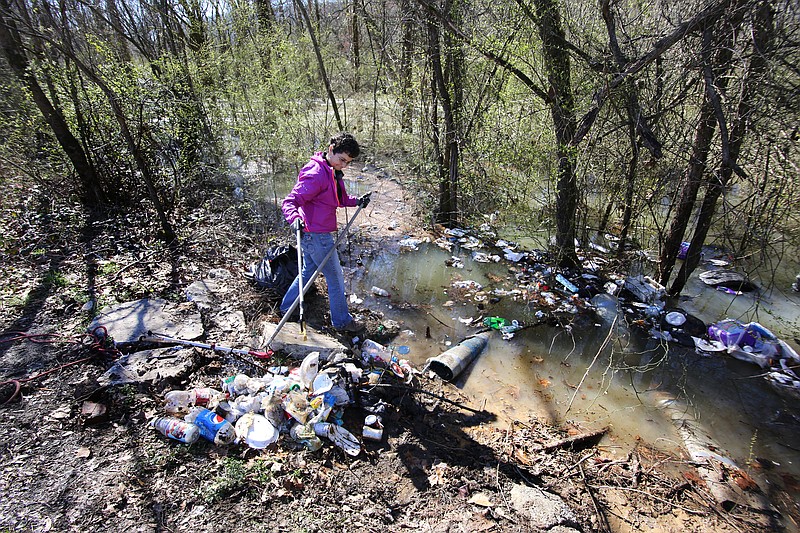It's all too easy these days to get caught up in the bad news that assails us daily: A police officer is killed, the legislature advances another unnecessary and unconstitutional assault on women's reproductive rights, a teen is still missing after floods wash away the car in which he rode.
But we need to stop every so often and look at the good going on - the efforts to invest in our community to make it better.
Education dollars and accountability
First, educational kudos should go to Tennessee Sen. Todd Gardenhire, R-Chattanooga, for his dogged pursuit of transparency (often not a Republican strong point in these days.)
Gardenhire took on Hamilton County Schools officials and their insurer for keeping secret the amounts in out-of-court lawsuit settlements in the 2015 Ooltewah High hazing rape cases. Contrary to the claims of school attorneys and insurers, those settlements are "most likely" required to be disclosed to the public - we taxpayers - under Tennessee's open government laws, according to Open Records Counsel Lee Pope. Gardenhire asked Pope's help after school officials tried to blame their lack of transparency on the Tennessee Risk Management Trust, created by governmental entities and funded by local governments to provide services like insurance management.
In the process of researching an answer for the senator, Pope also found that the school board may have violated the Tennessee Open Meetings Act when it decided during a closed-to-the-public "executive session" to refer the lawsuits to the insurer. Board members may get advice during closed executive sessions, but not take actions - especially not actions that involve expenditure now or later of our money.
Gardenhire told the Times Free Press that the bottom line is a public entity such as a school board "cannot transfer the obligation to not be under the open records statutes." He did, however, stress that his persistence for transparency should not be confused with violating the privacy of the Ooltewah hazing rape cases.
"Anything pertaining to a minor child shouldn't be public record," the senator said. "But the monetary settlement that was caused by people not doing their job at the Department of Education and their lawyer should be public record so we know how much their mistakes cost us."
Well? So how much did it cost us?
Thank you, Anonymous UTC donor
We learned Tuesday that an anonymous donor has made a $15 million bequest to the University of Tennessee at Chattanooga - the third largest in the school's history - to create a Fund for Excellence to support facilities, research, equipment and scholarship.
What's more: It's a trend.
University of Chattanooga Foundation Executive Director Bryan Rowland said private support for UTC has risen dramatically in the last five years.
"This marks the second eight-figure commitment made to UTC in the last eight months," he said.
In 2018, private giving to UTC totaled $57.3 million, the highest annual total in university history, according to the release.
Learning is earning, and our community is the beneficiary.
Cleaning up our environment
Chattanooga Creek has a long and dirty history with waste that includes federal mandates, local cleanup efforts and a lot of trash. This was especially apparent after recent flooding sent floating garbage off the shoreline and toward the Tennessee River.
Those torrential rains also kept down the numbers of annual cleanup volunteers, but still on Sunday after the sun finally came out, crews filled bag after bag with trash.
Three major cleanups last year cleared about 4,500 pounds of trash from the creek and its borders, and this year's volunteers expect to launch three more sweeps in 2019.
If you want to help, contact Randy Whorton at randy@wildtrails.org or Mary Beth Sutton at marybeth@caribbean-sea.org.
A plan to rebuild neighborhoods
Chattanooga Mayor Andy Berke and others have talked a lot in the past year about how to make affordable housing more available in our city.
This is an important goal, and one that is harder than it might seem in a time when more affluent members of our community are increasingly interested in moving back into the center of the city. Developers, whose aim, understandably, is to profit, look to build condo homes and apartments that those affluent folks want to live in. The unfortunate result is gentrification - and the decreasing lack of community and economic diversity that goes with that trend.
So Berke and Chattanooga officials are putting some money with their goal. On Monday, they stood in front of a rundown duplex off Orchard Knob Avenue and announced a new affordable housing fund - $1 million a year for the next five years - to increase housing options in the city.
The vacant, blighted duplex, along with similar ones nearby, was built in the 1940s and '50s for returning World War II veterans and their families. Now those homes show years of neglect. Berke said they are the perfect example of the kind of housing that could benefit from the newly formed Chattanooga Affordable Housing Fund that will help the city partner with owners and buyers to build new, affordable housing or remodel current housing - like the duplex.
There's a catch. Participants will be required to live in the homes they buy. This is about community building.
